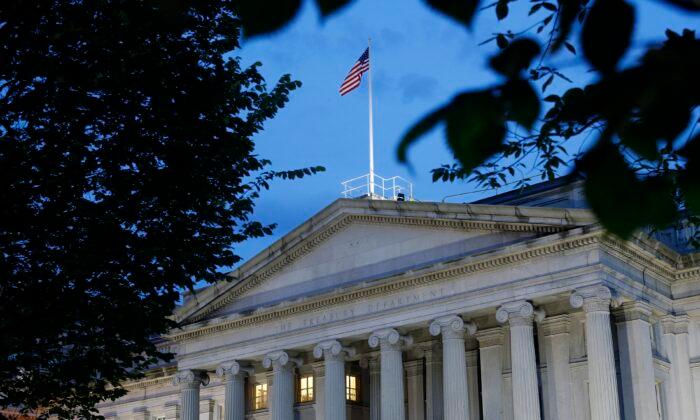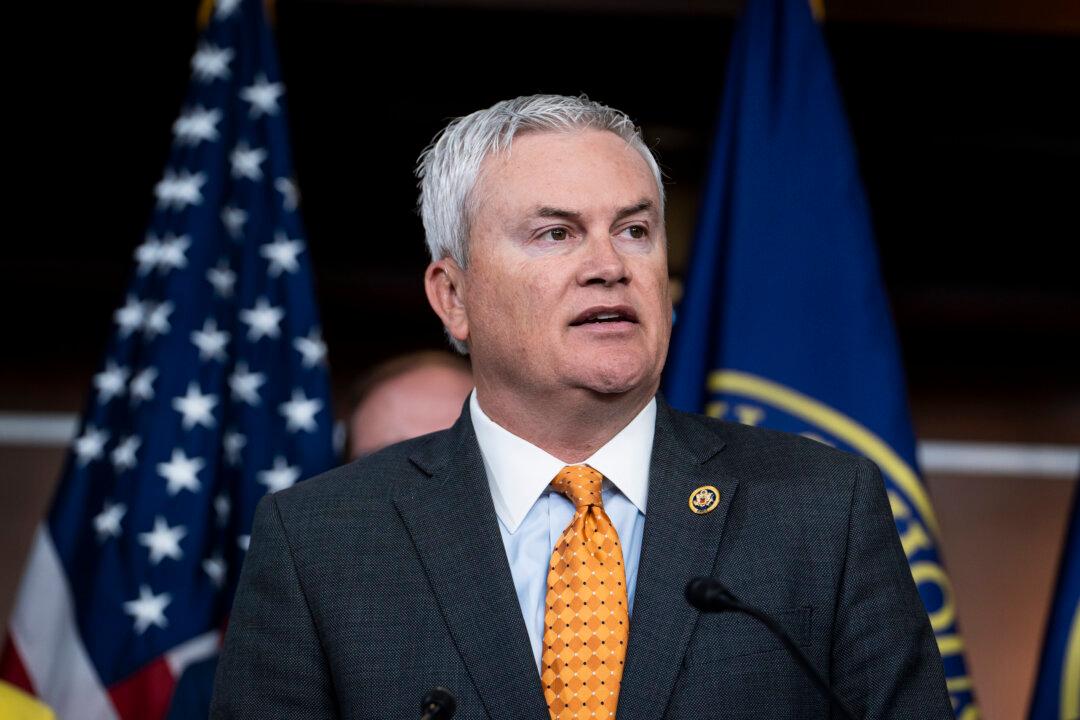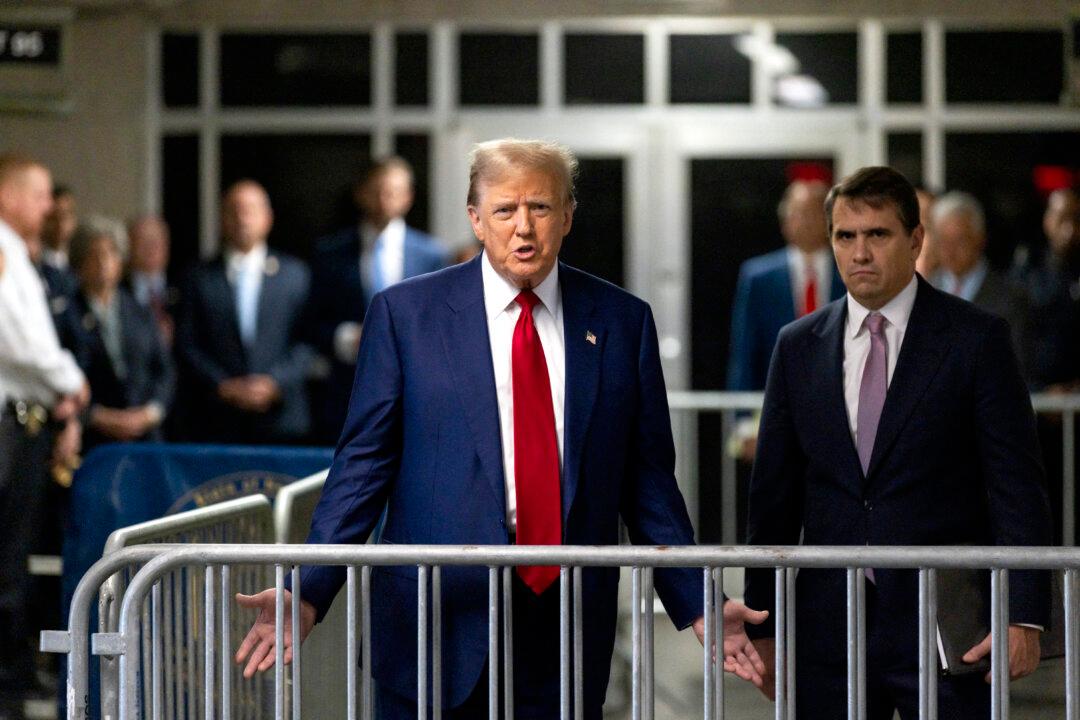The U.S. Treasury Department on Tuesday imposed sanctions on multiple companies accused of using illicit gold sales to help fund Russia’s Wagner mercenary group.
One individual, Wagner executive Andrey Nikolayevich Ivanov, has also been sanctioned for allegedly facilitating mining and weapons deals in Mali on behalf of Wagner chief Yevgeny Prigozhin.
“Treasury’s sanctions disrupt key actors in the Wagner Group’s financial network and international structure,” Under Secretary of the Treasury for Terrorism and Financial Intelligence Brian E. Nelson said in a statement.
The four companies targeted by U.S. sanctions in Tuesday’s actions are: Central African Republic-based Midas Resources SARLU (Midas) and Diamville SAU (Diamville); Dubai-based Industrial Resources General Trading (Industrial Resources); and Russia-based Limited Liability Company DM (OOO DM).
Treasury alleges that Wagner, acting as a proxy military force of the Kremlin, has committed widespread human rights abuses and appropriated natural resources in multiple African countries.
“The Wagner Group funds its brutal operations in part by exploiting natural resources in countries like the Central African Republic and Mali,” Nelson said.
“The United States will continue to target the Wagner Group’s revenue streams to degrade its expansion and violence in Africa, Ukraine, and anywhere else,” he added.
The Russian embassy in Washington did not immediately respond to a request for comment on the sanctions.
Besides fighting some of the bloodiest battles in Ukraine in what the Kremlin calls a “special military operation,” Wagner forces have fought in Libya, Syria, the Central African Republic, and Mali, among others.
In January, the United States designated Wagner as a transnational criminal organization responsible for widespread human rights abuses, with the Kremlin accusing Washington of having baselessly “demonized” the group.
Wagner Beginnings
The Wagner Group, officially known as PMC Wagner, or Wagner Private Military Company, is a Russian paramilitary organization first identified in 2014, when it backed pro-Russian separatists in eastern Ukraine.While private military companies are technically illegal in Russia, Wagner has operated with state backing. Some reports say the group’s murky legal status has allowed it to operate with plausible deniability as an unofficial armed wing of the Kremlin on sensitive foreign missions.
Russian President Vladimir Putin in 2012, while serving as prime minister, told the Russian Duma that he supported the creation of private military companies as tools of Russian influence abroad.
Wagner in November 2022 opened an office in St. Petersburg, where Putin once served as mayor and Prigozhin ran a restaurant that Putin would frequent.
Utkin himself, along with Wagner operatives, took part in Russian operations in Ukraine in 2014, the year Russia took over Crimea.
Wagner in Ukraine
Amid Russia’s invasion of Ukraine, Wagner forces have provided the Kremlin with key support, doing much of the heaviest fighting in the Donbass region and taking significant casualties in the fight for Bakhmut.In the course of the conflict in Ukraine, however, the Wagner chief has feuded with Russia’s top military commanders, accusing them of starving Wagner forces of weapons and supplies, and later alleging that they ordered air strikes against the mercenary group.
A culminating point was a June 23 accusation Prigozhin made in a post on his Telegram channel against Russian Defense Minister Sergei Shoigu, who the Wagner chief accused of “destroying” his fighters and called for an armed mutiny.
A longtime ally of Putin, the Wagner Group’s leader did not target the Russian president in his attacks on Russian military leaders.
The Wagner leader vowed to “deal” with those who destroyed Russian soldiers and then return to Ukraine after doing so.
“Prigozhin also notably accused Russian Defense Minister Sergei Shoigu of personally planning an operation to destroy Wagner and claimed that 25,000 Wagner personnel are prepared to act,” the Institute added.
The Wagner chief later posted on his Telegram channel that there was no “coup” but only a “march for justice.”
On Friday and into Saturday, Wagner soldiers set their sights on Moscow after seizing the southern Russian city of Rostov-on-Don overnight.
Russia’s military reportedly fired on them from the air and set up roadblocks but did little to blunt their rapid advance.
The Wagner charge drew a rebuke from Putin, who in a speech called the armed rebellion a betrayal and vowed to punish its leaders.
But in a stunning reversal later on Saturday, the Belarus President’s Office announced that Prigozhin had agreed to deescalate the situation in an amnesty deal reportedly brokered by Belarus President Alexander Lukashenko.
Prigozhin later announced that Wagner forces would halt their advance on Moscow to avoid bloodshed.
Kremlin spokesperson Dmitry Peskov later said that charges against Prigozhin would be dropped and he would be sent to neighboring Belarus as an exile.
Putin said in speeches on Monday and Tuesday that the Wagner rebellion was a betrayal and risked “civil war” although he praised the fighters for their battlefield courage and accomplishments in Ukraine.
The Russian leader offered them the choice to relocate to Belarus, be folded into the regular Russian army, or simply go home to their families.





